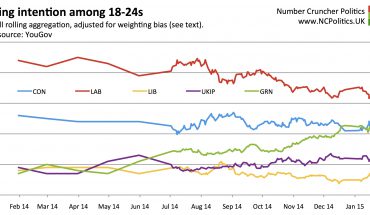This weekend Polling Matters published its first poll, conducted by Opinium, on the subject of what Brittons want from Brexit. The key points: opinion is quite strongly against a second referendum, with even a significant minority of Remain voters opposed to it. However, by a narrow margin, voters prefered a “soft” to a “hard” Brexit.
Opinium/Polling Matters (Should there be a second EU referendum):
YES 33
NO 5213th-16th December
N=2,000#Brexit— NumbrCrunchrPolitics (@NCPoliticsUK) December 17, 2016
Even 27% of Remain voters don’t want a second referendum. It’s not clear whether that’s because they’d rather not reverse the result even though it’s not the one they voted for, or because they’re simply fed up with voting. Interestingly, when the question was repeated under a hypothetical situation where the economy was doing “significantly worse”, the answer was identical.
The usual caveat with hypothetical questions applies – people aren’t very good at judging how they’d feel in a hypothetical situation – but even so, the lack of movement is pretty striking.
The other question, on the type of Brexit people prefer, has already provoked a fair amount of debate on social media:
Opinium/Polling Matters (#Brexit preference):
HARD BREXIT 35
SOFT BREXIT 4113th-16th December
N~2,000— NumbrCrunchrPolitics (@NCPoliticsUK) December 17, 2016
This question broke more strongly across Remain/Leave lines than the above, but with Leavers slightly more split (60% prefering hard Brexit compared with 70% of Remainers prefering soft Brexit), giving soft Brexit the lead, though admitedly with a lot of undecideds and neutrals.
The poll didn’t actually use the terms “soft” and “hard” – the exact wording that Opinium scripted was as follows:
You may have heard different descriptions of what sort of deal the UK might receive when it leaves the EU.
Assuming that Britain does leave the EU and these were the options available, which scenario would you prefer?
This highlights the difficulty, as discussed when I last appeared on Polling Matters, in asking about complex topics like Brexit negotiations. If something is actually being put to a referendum, the question wording is simply the one on the ballot paper. Any bias in the question may be a democratic problem, but it isn’t a polling problem. But if the question is simply gauging public opinion, how should it be phrased?
One option would have been to use the soft/hard terminology, but those terms aren’t widely understood, so the number of people not giving a preference could be even bigger. Worse, the additional “don’t knows” and neutrals could come disproportionately from one side, biasing the result. Using more elaborate descriptions involving the single market, trade and immigration might make some difference, but would probably have similar problems.
So the solution is to give additional information. That solves the problem of dealing with what most people find an abstract concept, but creates a new one – the more information you provide, the more you risk leading people. Some will think the above wording is fair and others will think it’s biased. The fact is that there is no single right answer and the results are often very sensitive to the way the question is asked.





